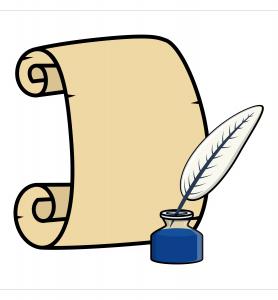Writers, avoid self-publishing traps.
The only guarantee that you will get from most self-publishing company is that it is going to cost you a lot of money.
I don't write for a living and working with Apollo was great they did everything and never asked for my CC”
NAPERVILLE, IL, USA, April 9, 2017 /EINPresswire.com/ -- You have taken the time and spent the energy to write your book. You many even spend the money to have it copyedited. But now you have a choice: do you try to get published or do you self-publish? There are pros and cons to both options. I have been working with many authors who have fallen victim to self-publisher traps. They spent a lot of money to get a few printed copies of their work and maybe got it listed on amazon.com with several hundred thousand other titles. I don’t want to call self-publishing2 companies scammers, because most of them deliver what they put on their websites, and a scam would take your money and not deliver. The term publisher is a broad term, and many of these self-publishing companies take advantage of that. — Daved W.
There is a distinct difference between a publisher and a self-publisher in how things are done. A publisher will read your book, give you feedback, and work with you if they like what you have written. They then offer you a contract, develop a marketing plan, get your book into the distribution network, and spend a lot of money promoting you and your book. A publisher’s motivation is to sell books, because a publisher makes money by selling books, not by charging authors. Publishers assume all the risks associated with publishing by investing their own money into an author.
Self-publishing companies work on a different economic model. A self-publisher has no risk because it makes its money by charging authors for everything and upselling them on these elaborate publishing packages. We have seen some of these packages exceed six thousand dollars!. They will never tell anyone that their manuscript needs a little work or that they have written a book that may be difficult to sell. And if they market the book for you, using the money you paid them, and it does not sell, they just shrug their shoulders and say, “we did what you paid us to do.”
Our recommendation is that if you have spent the time and energy to write a manuscript, you owe it to yourself to at least try to get it published. Other than a little time and maybe a few rejections, you have nothing to lose. Moreover, if you do find a publisher that will publish your work, you will probably sell a lot more books than if you had done it alone. If you can’t find a publisher, you will always have the option to self-publish. We know it is extremely exciting to get your work put in print, but a little patience and diligence can really pay off. For one, you won’t have to spend thousands of dollars of your own money.
The easiest way to tell the difference between a publisher and a self-publisher trap is to see what they ask for. A publisher will ask to see your manuscript, whereas a self-publisher will ask for your credit card. After review, a publisher may tell you that you have written a good manuscript, while a self-publisher will always tell you that you have a great manuscript, if your credit card charges clear. Your manuscript is like any other work of art: what you create will not appeal to everyone. One publisher may love it, and another will reject it. Never take the rejection personally. It is not always a reflection of your work. A good publisher will at least tell you why, and if they don’t, you owe it to yourself to ask and you deserve a candid answer.
We are publishers; We have rejected some manuscripts, and I we have accepted others. It is the nature of the business. We enjoy working with authors and finding out where their stories came from, and many times the background behind the story is as interesting as the story itself. We publish, print, distribute, and market books worldwide all day long every day. That is our job; it is a lot of work and expensive. We have more experience than the vast majority of self-published authors. Self-publishing may be a good option for you, but don’t just quickly dismiss the idea of getting published either.
Publishing versus self-publishing really comes down to who pays for everything: you or the publisher. There are other benefits that go along with publishing, for example, control over the intellectual property. If you self-publish you have 100% control over the book; however, you also have 100% of the risk and expenses. A publisher can be a great help, and we don’t require a credit card number to provide it.
Happy Writing!
www.apollopublications.com
Stephanie Timmer
Apollo Publications
630-206-0235
email us here
1 http://www.apollopublications.us/apollopub
2 http://www.apollopublications.us/apollopub
3 http://www.apollopublications.us/apollopub

